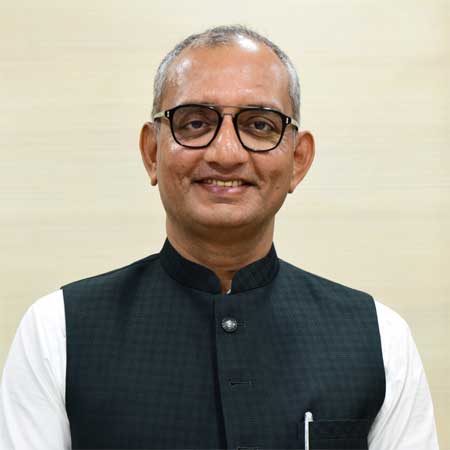Atul Tiwari (IAS), Secretary, Skill Development and Entrepreneurship
There is a mismatch between skill requirement and supply: Atul Tiwari, Secy, Skill Dev
The skill shortage challenges is a matter of concern for the global community for quite some time. There is a need for harmonisation and collaboration at the global level.

About The Episode
Welcome to the full Episode 13 of Sustainability Karma, India’s first and only talk show on sustainability on All India Radio.
In this episode of Sustainability Karma, Atul Tiwari (IAS), Secretary, Ministry of Skill Development and Entrepreneurship (MSDE), Government of India, talks about government initiatives on skill building and green jobs and the role of India Inc in it.
Mr Tiwari says that the ministry is taking a proactive approach to address the rapidly evolving skill requirements in the job market. Recognizing the dynamic nature of the job market and the increasing demand for new skills, the ministry is actively engaged in implementing measures to meet these evolving skill requirements. This includes providing training in high-demand areas such as the digital economy, care economy, and green economy.
To stay on top of industry needs, he adds, the ministry has established agreements with key entities such as Pearson, Infosys, LinkedIn, Cisco, Microsoft, IBM, Amazon, and IITs. These partnerships allow the ministry to leverage expertise and resources for industry-relevant skill development programmes.
Celebrating the three-year mark of the education policy, Mr Tiwari elaborates that the ministry has signed MoUs with various companies to bring essential skills to the forefront. Digital and technological integrations like Skill India digital platform, Bharat Skills, FutureSkills Prime and eSkill India ensure that learners stay updated with the latest industry practices and technologies.
On the entrepreneurial side, he adds, initiatives such as NISBUD’s entrepreneurship stimulation for school students and a life enrichment programme contribute to fostering an entrepreneurial ethos. The ministry, in collaboration with NCERT, has developed a textbook for entrepreneurship for class 9 to 12 students.
Highlighting the importance of an agile and responsive curriculum, Mr Tiwari adds, the ministry emphasises on lifelong learning and advocates for public-private partnerships to improve the reach and effectiveness of skill development programmes. The focus is on making Indian workers equipped with the necessary skills to thrive in the global dynamic economy.
Addressing the global demand for green skills, he adds, the ministry aims to create 35 million green jobs by 2047. Training programmes cover various areas, including renewable energy, waste management, electric vehicles, sustainable textiles, and green construction. Collaboration with green industries and modification of existing skill development programmes ensure the integration of green skills.
Mr Tiwari says that the industry response has been positive with 37 Sector Skill Councils representing nearly 40,000 companies actively participating in curriculum development, offering internships, apprenticeships, and on-the-job training opportunities. The ministry emphasises the need for companies to promote lifelong learning, upskilling, and green practices in their operations.
On a global scale, he adds, the ministry recognises the long-standing concern of the global community regarding skill shortages. There is a growing realisation of the need for skill gap assessments, harmonization, and mutual recognition of certificates. Collaboration at the global level with organisations like the ILO and OECD is crucial to address skill shortages globally. While concluding he says, the ministry’s vision for a skilled India involves proactive measures, collaborations with industry leaders, a focus on green skills, positive industry responses, and global cooperation. The ministry aims to build a robust and adaptable workforce capable of meeting the evolving demands of the job market.

